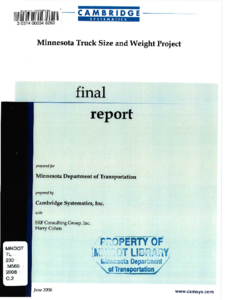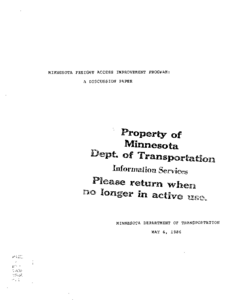The Northstar Workshop, "A Bold New Look at Minnesota's Roads and Loads," was held at the Leamington Hotel, Minneapolis, Minnesota on November 13, 14, and 15, 1984. The Workshop addressed two main aspects of highway loads - the 80,000-lb. gross truck load and the springtime load limitation policies. There was an attendance of about 140, mainly from Mn/DOT, but also from the four adjacent states and Michigan, the two bordering Canadian provinces, the Minnesota State Planning Agency and Legislative Research, agencies such as AASHTO and FHWA, the Minnesota Motor Transport Association, county and city engineers, and the paving industry and truck manufacturing industry; thus, it constituted a comprehensive cross-section of persons concerned with the subjects under discussion. The format of the Workshop was one and one-half days of presentation of papers by individuals on subjects which had been assigned to them, with limited questions and discussion after each one, followed by group discussions for which the attendees were divided into six groups. Reports of these discussions were made to the full conference by group leaders
and a final summary was made by Deputy Commissioner Robert McDonald. Following the Workshop, Mr. McDonald appointed a Truck Weight Action Group to compile recommendations based on the papers and discussions at the Workshop, and this group has made its report; its recommendations, in effect, represent a summary of the dominant thoughts of the Workshop. The report is included in Appendix A of the proceedings.









